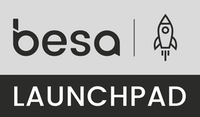Trump’s Presidency and the Ripple Effect on PSHE Education

America may be geographically distant, but as the saying goes, “When America sneezes, the world catches a cold.” In an increasingly interconnected world, global events ripple through technology and media, influencing attitudes and beliefs everywhere. One of the biggest challenges for PSHE teachers remains keeping up with the pace of change.
So, what impact might Trump’s presidency have on your PSHE lessons? Here are five areas we are monitoring to ensure Chameleon PDE resources stay relevant and up to date:
1. Online Safety
In the lead-up to the election, tech giants announced plans to dissolve their fact-checking initiatives, opting instead for community policing of content. This shift coincides with a surge in fake news, unregulated influencers, and sophisticated AI-driven disinformation, some of which targets young people.
The UK’s Online Safety Bill aims to provide some protections, particularly for children, but its effectiveness against the power of global tech companies remains uncertain. This underscores the importance of using PSHE lessons to educate students on the challenges and complexities of navigating online information, while equipping them with the critical thinking skills needed to assess content and engage with the digital world responsibly.
2. Mutual Respect and Tolerance
The 2010 Equality Act brought progress in fostering equality and respect across the UK. However, recent years have seen signs of regression. Within days of returning to office, Trump signed executive orders withdrawing from the WHO and the Paris Climate Accord, rejecting gender identity recognition, and redefining the Gulf of Mexico as the "Gulf of America."
While such actions do not directly affect UK policies, their global media coverage can influence societal attitudes and polarise opinions. These events underline the importance of teaching students how to navigate controversial topics and uphold respect for diversity.
3. Women’s Rights
Over the past two years, one of the most popular CPD sessions we have run has been our Misogyny Teacher’s Toolkit, reflecting growing concerns about misogyny’s impact on both students and staff. Trump’s reinstatement of the “global gag rule,” which cuts funding to organisations offering abortion-related counselling, has amplified fears around women’s rights. (1)
This rollback mirrors trends elsewhere, such as Poland’s restrictions on abortion rights, and underscores the global struggle for gender equality. (2) PSHE lessons must continue to address gender-based discrimination, harassment, and equity.
4. Rise of Right-Wing Narratives
Trump’s rhetoric resonates with other populist and nationalist movements worldwide. European far-right parties applaud his anti-immigration stance and disdain for international institutions, and his message reaches a vast audience through both traditional and social media channels. (3)
In the UK, political fragmentation is becoming more pronounced, demonstrated by the Conservative Party’s loss of nearly a quarter of its membership over the past two years. (4) Many of those who have left the party have shifted their support towards more populist movements, including parties like Reform, which align with similar populist ideals. (5)
As political polarisation grows, teaching critical thinking and respectful debate becomes increasingly vital in helping students navigate these complex and often divisive issues.
5. Rise of Opposition
Polarised political agendas often spur stronger opposition. In the US, resistance to Trump’s policies is already evident, with Democrat-led states challenging executive orders such as the removal of birthright citizenship. (6)
In PSHE, this highlights the importance of teaching students about advocacy, democracy, and the role of opposition in shaping society.
Supporting Students Through Global Change
For most adolescents, their immediate world—relationships, school life, and personal challenges—takes precedence over global events. However, the sheer prevalence of online content means that world issues can seep into their daily lives, sometimes causing confusion, worry, or anxiety.
Here are some practical tips to help mitigate these impacts:Teach Critical Thinking: Encourage students to fact-check online information and be discerning about its accuracy. Use lessons like Media Influence (Age 12-13) or Can You Become Too Reliant on Social Media? (Age 14-16) from the Chameleon PDE library.
Teach Critical Thinking: Encourage students to fact-check online information and be discerning about its accuracy. Use lessons like Media Influence (Age 12-13) or Can You Become Too Reliant on Social Media? (Age 14-16) from the Chameleon PDE library.
Discuss Online Algorithms: Raise awareness about how algorithms influence content consumption. Lessons from the Misogyny Teacher’s Toolkit (Age 11-18) provide great starting points.
Promote Balanced Media Consumption: Recommend trusted, independent news sources. In the UK, outlets like the BBC, the Guardian and the Financial Times are often regarded as reliable. (7)
Focus on Values: Ensure your PSHE lessons cover more than just knowledge, incorporating discussions on values and encouraging a safe environment where students can explore differing viewpoints, engage in respectful disagreement, and understand their rights and responsibilities. Lessons like What Can I Do to Promote Inclusion in My Community? (Age 12-13), Where Do My Values Come From? (Age 14-16), and Are Human Rights Balanced in Society? (Age 16-18) can support these discussions and help deepen understanding of values and rights.
Prioritise Online Safety: Explore the Online and Offline Safety resources in our library, our largest section, reflecting the critical importance of equipping students with the practical tools they need to navigate the digital world safely and responsibly. With over 70 lesson packs, this collection is designed to address the growing need for digital awareness and protection.
Address Mental Health: Adolescents may focus primarily on their immediate relationships and personal lives, but they can also feel overwhelmed by world events, especially when these issues seem personally relevant. Equip students with strategies to manage anxiety and overwhelming emotions. Lessons like Boosting Mental Health (Age 11-12), Support for Mental Health (Age 13-14), Helping a Friend or Relative Who’s Struggling to Cope (Age 14-16), and Prioritising Mental Health (Age 16-18) can help students build resilience and emotional awareness.
Partner with Chameleon PDE
If you're not yet a Chameleon PDE partner school and would like to learn more about how we can support you with our award-winning ‘wrap-around support’, please get in touch at info@chameleonpde.com.
Sources:
(1) International Bar Association https://www.ibanet.org/article/F6A4345E-7E8A-
(2) Guardian https://www.theguardian.com/global-
development/article/2024/sep/04/gender-equality-stalling-or-going-backwards-for-
(3) Euronews https://www.euronews.com/2024/11/08/is-trumps-victory-an-
opportunity-or-double-edged-sword-for-europes-far-right
(4) The Spectator https://www.spectator.co.uk/article/tory-membership-falls-by-
almost-a-quarter-in-two-years/
(5) BBC news https://www.bbc.co.uk/news/articles/cq62qv3486qo
(6) ABC news https://www.abc.net.au/news/2025-01-23/trumps-toughest-opposition-
is-emerging-outside-washington/104849266
(7) YouGov https://yougov.co.uk/politics/articles/45744-which-media-outlets-do-britons-trust-2023




